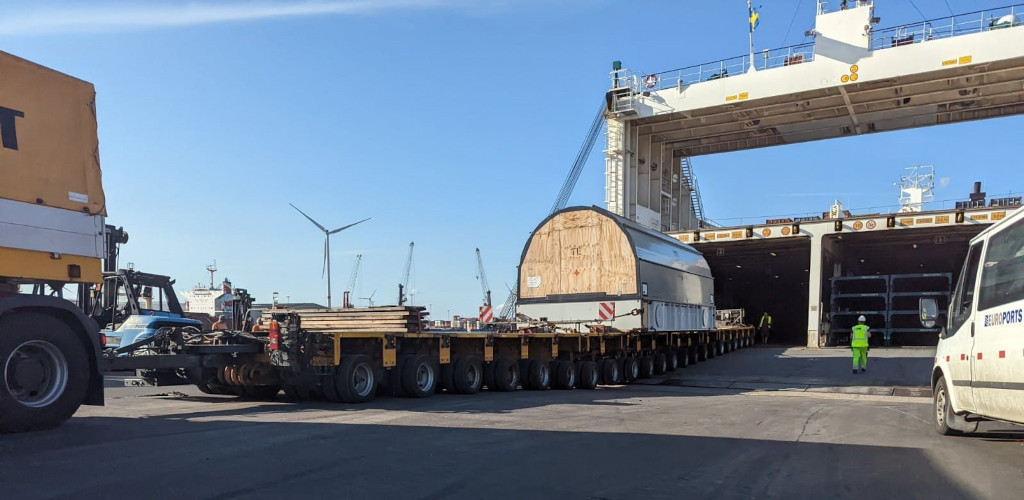German Firm Deployed Trailers and a RoRo Vessel to Move Heavy Units

Alexander Global Logistics was recently hired to deliver a batch of heavy-lift components for pulp producer Metsä Fibre’s new bio-product mill in Kemi, western Finland.
The units, which included generator, turbine and condenser sets for the project’s power plant, were loaded onto trailers then shipped by RoRo vessel from Germany to Kemi Port’s bulk cargo-handling Ajos Terminal.
At Ajos, the components were transferred from the German-registered trailers onto Finnish flat-beds using a hydraulic lifting system, then transported by road to the project site.
“This solution was not only cost effective, but it also reduced time,” the company said.
According to Riza Gögüs, business development manager for projects at Bremen-based AGL, the biggest challenge was obtaining road permits in Finland.
“Due to the transport weight and dimensions, we had to arrange several meetings with the Finnish authorities and engineering offices to survey the bridge structures along the route and find a common solution. It took a lot of time,” Gögüs told Breakbulk.
A Sustainable Option
Metsä Fibre is one of three major pulp producers in Finland alongside UPM and Stora Enso.
The Kemi mill is replacing an existing mill at the same site, with operations slated for start-up in the third quarter of 2023. The project will use some 7.6 million cubic metres of sustainable pulpwood per year to produce 1.5 million tonnes of softwood, birch pulp and other products such as biochemicals and bioenergy.
The US$1.85 billion project will also generate 2.0 TWh of clean electricity per year, equivalent to about 2.5 percent of Finland’s total power production.
Globally, pulp and paper is set to be a major source of cargo-carrying contracts for years to come, despite prior fears that digitalization and fast-evolving consumer behaviour would lead to industry decline.
Driven by e-commerce and rising living standards, the global pulp market is expected to grow from US$519 billion in 2020 to US$680 billion by 2027, according to a recent study.
